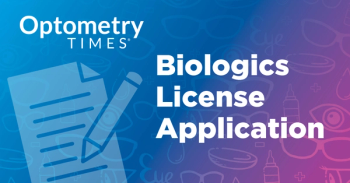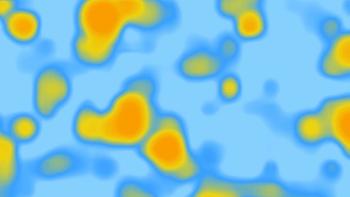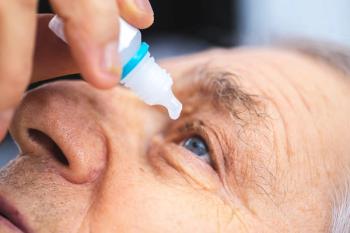
The importance of early referral and awareness regarding AMD, low vision
Optometry Times chats with Tracy Williams, OD, FAAO, on AMD and low vision's impact on patients' overall health and mental wellness.
In honor of
Editor's note - This transcript has been edited for clarity.
Jordana Joy:
Hi, everyone. I'm here today with Dr Tracy Williams, executive director of Spectrios Institute for Low Vision in Wheaton, Illinois, and a clinical professor of Ophthalmology of Loyola University. First, I would like to thank you for being here, Dr Williams, it's a pleasure to have you.
R Tracy Williams, OD, FAAO:
Pleasure to be with you, Jordana.
Joy:
Awesome. So to get us started off here, what is the connection between age-related macular degeneration, or AMD, and low vision?
Williams:
I think that if you think of eye care, on two sides of the fence, one side is the primary care, advanced medical care, so to speak. A person goes in and they are hoping everything's great, maybe they just need a pair of glasses, and the doctor says, 'Boy, you got some things going on in the retina, and you have macular degeneration.' So then you're referred off to a retinal specialist if some treatment is needed. If it's the wet type...versus the dry type. There is a new treatment for the dry type, but for the most part, the medical side of it is done, and when there's a vision loss, a permanent one that we don't have a cure for, that's when you you get referred to the other side of the fence. So low vision rehabilitation, vision, rehabilitation is a treatment modality, I'd like you to think of it as, just like eye surgery or drug eye therapy. Vision rehabilitation is going to help the person meet the challenge of the vision loss, so they're not defined by the vision loss, they're always defined by their head and heart. So it's a wonderful area. I think, people don't get the opportunity to be comanaged, both medical side of the fence and rehab side of the fence, and that is a sad thing. I think if you're only on the one side of the fence that, unfortunately, I think depression can happen, and I don't think a person realizes what their full potential could be. I think that it really affects the person from the standpoint of activities of daily living, career goals, hobbies, just so many things and it shouldn't be. I'm actually happy to chat with you because I think more referrals, more timely referrals need to be made. I think if people knew how wonderful the low vision treatment can be for a loved one or friend, it's just something that that needs to be [known.]
Joy:
Going off of that, are there any low vision warning signs that optometrists should be looking for to then refer a patient out to a specialist?
Williams:
You know, I think the thing I've seen for years is patients aren't referred soon enough. Sometimes you ask yourself, what is a timely referral? And that would be I think, first of all, if you know a person has diagnoses where they are definitely diagnosed, for example, with macular degeneration, and, unfortunately, there's no cure for this on earth, then I think early intervention has long been the hallmark for any type of rehab. As soon as you can begin this comanagement process, [the better.]
This has been something established a long time, I can tell you that I actually worked at the National Eye Institute with the National Eye Health Education program. I was cochair of the low vision group and we were getting the messages out that a standard of care is if you have patients that have vision loss, please refer them over to vision rehabilitation. It might start in your own office and, you know, there might be some interventions that you can do. But if you don't have the full complement of services, and tools, let's say prescriptive tools, then you really need to refer that person off where they can get that full complemented service.
Joy:
Okay, and what are the best ways to prevent AMD?
Williams:
Well, I think the first thing is, is to be aware of what the National Eye Institute says are the variables. I think, first of all, genetics; this does run in families. Then another one might be don't be a smoker. We found that this is not good with macular degeneration. Another one is keep your blood pressure and cholesterol in the good range. Another one is be careful if you're a sun worshiper, protect yourself and eyes from the sun. Another one is: boy, I hope you like green leafy vegetables. Another one is exercise, keep your muscles and blood flow going.
This might sound a little bit out there, but I think you keep busy. I think if being active, you know, your life has purpose. And even if you get the macular degeneration to continue that purpose point that I bring up. There was a study done, a few studies at the National Eye Institute, with the AREDS vitamins, so we do know that if you take that formulary, what, you've got a 20 to 30% chance of not advancing. I wish it was 80, but still yet anything that can improve this, I think is a good thing.
But how about that ongoing care, though? Yes, get your eyes examined every year just because if the optometrist or ophthalmologist can begin to see that there are some of the changes like the [retinal] drusen we hear about. I think that we have to talk to the patients more and we have to make them aware of what macular degeneration is, especially if it's in their family. I think that we have to give them hope supported by science, and I think we have to be careful about not giving hopeless messages. You help them realize every step of the way how they can be the best they can be and how they can improve themselves because low vision isn't just being good clinically and comanaging what's going on, as far as any of the anatomy. But it's also a psychosocial sort of experience where you want to tickle the human spirit. You want you can't candy-coat a vision loss, but I think you can help people use their energy to fill that bucket of fruitfulness, not anger, depression, and frustration. So that's what I mean about having an attitude about never being defined by the vision loss. I think if people know what measures to take in their lifestyle in their eye care, then they can be more proactive than reactive. I've loved being a low vision specialist. That's just a very satisfying, rewarding position to be in.
Joy:
For sure, always good to hear. Prevent Blindness has named February as AMD Awareness Month. What role does awareness play in combating AMD and low vision? I know it's something you've kind of touched on already.
Williams:
Yeah, well, first of all, Prevent Blindness and groups like that are so helpful. I think getting a message out for a month is fantastic. I think that people perhaps when they hear a credible group, like Prevent Blindness, say, "This is an important issue in America, in the world, and that there are opportunities for you and don't be afraid," here's resources and networks where they begin to help people begin to connect where they can get help. But I think that being aware of what a diagnosis means, I'm all for groups that are consumer-driven. In other words, people have to be advocates for themselves, and some of these health issues are very scary. Public awareness is an important thing and that's what the National Eye Institute, the NEHEP, have the National Eye Health Education Program, is trying to do. So I think they get the message out that there is help, it's something you can live with, it's something that you do need need to pay attention to, it's something sometimes that runs in families.
A lot of times when when the caregivers come in with their parents that have macular degeneration, they're serving as a coach, because they're that extra set of ears. That's a good concept too, when you have someone with vision loss, they have a significant other there. But sometimes they're kind of testing the waters like, "Well, could this happen to me? What exactly can I do today and what hope do I have for tomorrow?" So there's a lot of patient and caregiver education.
Joy:
For sure. Is there anything else that you'd like to add that we haven't touched on?
Williams:
I'll tell you, I only see 5 or 6 patients a day. That's pretty much how the low vision doctors are, and most of us are in non-for-profits. This non-for-profit, we have to have a development department. We raise funds because our examination service fees are covered, but you might say the surgery that we do is not. In other words, if you brought your mom in and she needed special glasses, or, in 30 some states, maybe you're not aware of that you can sometimes drive with glasses that have telescopes in the top. Some of these things have expense, and sometimes the expenses are not in the reach of the people that you're working with, so you raise money and you have compassion funds or matching grants. When you refer to a place like that they are helping your patients get the services and sometimes the tools. They are not doing the same thing as what you're doing on the other side of the fence. Oh, yes, we take retinal pictures and we monitor eye health, but that's only so we can make a timely referral back if something's happened in between the next follow up visit. So I'm just saying that that's what co management means. Sometimes patients need to have a team of doctors; they have not just one doctor, but they might have three doctors depending on, for the eyes, what their specific needs are.
I just think that we talk about different pandemics, but the ageing of America, I think people are going to have problems with their vision. I think that we don't want them to feel that that's just old age, and some of them are still extremely active. Maybe one spouse is taking care of the next one, and, doggone it, then they get macular degeneration. We can't forget about this: the economic burden to society. Prevent Blindness, by the way, has done those studies, and oh my gosh, what was it, like 10 years ago, the economic burden to society was like 54 billion a year. And now it's over 100 million a year. We need these Americans serving, not sitting in a room feeling like they're defeated, in the dark. We can do that we can give them the tools and the opportunities to be better.
Joy:
For sure, all very important points. Well, thank you very much for taking the time today, Dr Williams. It's been a pleasure.
Williams:
Oh, pleasure's mine.
Newsletter
Want more insights like this? Subscribe to Optometry Times and get clinical pearls and practice tips delivered straight to your inbox.








































